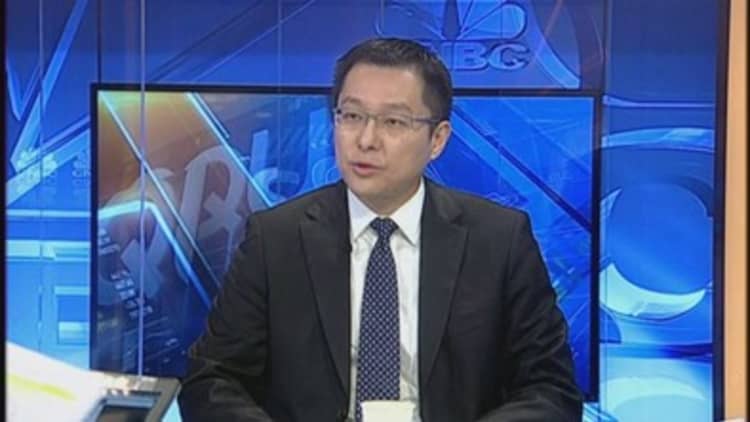
China new home prices registered their fifth month of annual drops in January, as tepid demand dragged on sentiment despite moves by the government to encourage buying.
New home prices fell in 69 of 70 cities by an average of 5.1 percent from the year-ago period, according to Reuters calculations based on fresh data from the National Bureau of Statistics (NBS) on Tuesday.
The pace pips the 4.3 percent decline in December, which was the largest drop since the current data series began in 2011, according to the FT.
Both Beijing and Shanghai clocked in steeper on-year price falls, of 3.2 percent and 4.2 percent, respectively, in January compared with the 2.7 percent and 3.7 percent respective declines seen in December.
The People's Bank of China slashed the reserve requirements of major banks - or the minimum amount of cash banks need to hold back from lending - last month. The move follows the central bank's surprise interest rate cut in November.
After skyrocketing in recent years, China's property prices have been cooling amid a glut of supply and as economic growth moderated.
The housing sector contributes to about 15 percent of China's economy. The world's second-biggest economy slowed to 7.4 percent in 2014, the slowest rate in 24 years.
"Since the beginning of last year we are already seeing a steady drop in housing prices across the board," said David Ji, head of research, Greater China, at Knight Frank.
"The problem that we have now is that the developers have two to five years of stock to clear. So until that has been cleared, prices aren't going up any time soon," he added.
Kaisa and shadow banking
The pain in the sector is being felt by property developers like Kaisa, which on Tuesday said its assets frozen by courts to protect its creditors have risen to more than $2 billion, sending its shares down nearly 10 percent in Hong Kong.
The troubled developer said Monday its debts now exceed $10 billion, of which it may have to repay more than half this year, and that it was in discussions with creditors to restructure its borrowings urgently.
Kaisa's problems underscores the role the informal – or shadow – banking sector plays in the slumping property market. These nontraditional Chinese lenders, or investment vehicles known as trusts, have lent massive amounts to the sector following the Global Financial Crisis, resulting in the accumulation of ballooning debt.
— Reuters contributed to this story.

